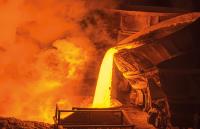 Add My Company
Add My Company
Sign In

The manufacturing industry in the UK is as old as the Industrial Revolution itself. The industry single-handedly contributed to the nation’s early economic growth. Northern England in particular, has had a huge role to play in the tumultuous manufacturing history of the UK. While we often forget the sector’s vast history, it is comforting to look back every now and then to see how far we’ve come.
The History of Northern Manufacturing
In 18th century England, the North’s wealth of coal and water power provided the resources needed to expand existing mining and milling operations. Up until this point, small-scale operations only served surrounding villages and towns. At the same time, newly discovered iron deposits in Cumbria and Cleveland paved the way for iron and steelmaking, which eventually supplied industrial shipyards along the coast. The textile industry also flourished here as the region’s soft water and damp climate made the fabrics easier to work with.
Sadly, as the manufacturing industry boomed in Northern England, the Great Famine wreaked havoc in Ireland. The famine forced many migrants to cross the Irish Sea to find food and shelter in England. Many settled in the booming industrial cities of the North, including Manchester and Liverpool. Migrants from Germany, Italy, Poland, Russia, and Scandinavia also arrived around the same time. While some migrants were fleeing poverty or slavery, others were wealthy industrialists who wanted to conduct business in the thriving industrial cities of the North.
As the 19th century hit, the UK’s industrial innovation, natural resources, transportation improvements, and trading relationships with Asia, Europe, and America continued to propel the industry forward. The booming textile, engineering, ship-building, and iron and steel making sectors allowed Britain to become one of the most technologically advanced and largest manufacturers in the world. Although Germany and the United States surpassed Britain as the world’s largest manufacturers by the early 20th century, we held our place as one of the largest industrial producers in the world.
During the Great Depression, as world trade declined the demand for ships, steel, and coal also fell, which highlighted the dangers associated with having such a specialized economy in the North. Fortunately, the industry survived, but following the Second World War, the newfound efficiency of steel production created even more challenges. Technological advances allowed companies to produce the same output with fewer manufacturing sites and fewer employees, which left many industrial workers without jobs. The competitive advantage of manufacturing in the North was also damaged during this time as the expansion of the electric grid made the Midlands and Southern England more convenient locations for new factories. Outdated factories also struggled to keep pace with advancing technology in the motor, electrical, and chemical industries, which further affected the economy in the North. Unfortunately, these circumstances were made even worse by regulations set in place by Margaret Thatcher who was concerned that investing in Northern development may threaten the success of the south.
Modern Manufacturing
While the history of manufacturing in the North was full of triumph and turmoil, the modern economy has arguably threatened the industry more than ever before. The modern manufacturing industry has continued to struggle since the economic downturn of the 1990s. During the past decade alone, nearly 600,000 jobs were lost as facilities moved overseas or closed down altogether. The newest and most talked about challenge facing the industry today is the uncertainty of Brexit. While many have remained cautiously optimistic, the impacts of the ongoing political and economic uncertainty have negatively affected business investment in the UK.
Although it’s difficult to deny the challenges that lie ahead, it is comforting to know that the industry is no stranger to adversity. We may have to adjust to a changing economic landscape, but if the Northern manufacturing industry can survive the Great Depression (and countless economic downturns), there is no reason we can’t rise to the top once again.
For more information on The Tumultuous History of Northern Manufacturing talk to KTR U.K. Ltd
Enquire Now
List your company on FindTheNeedle.

